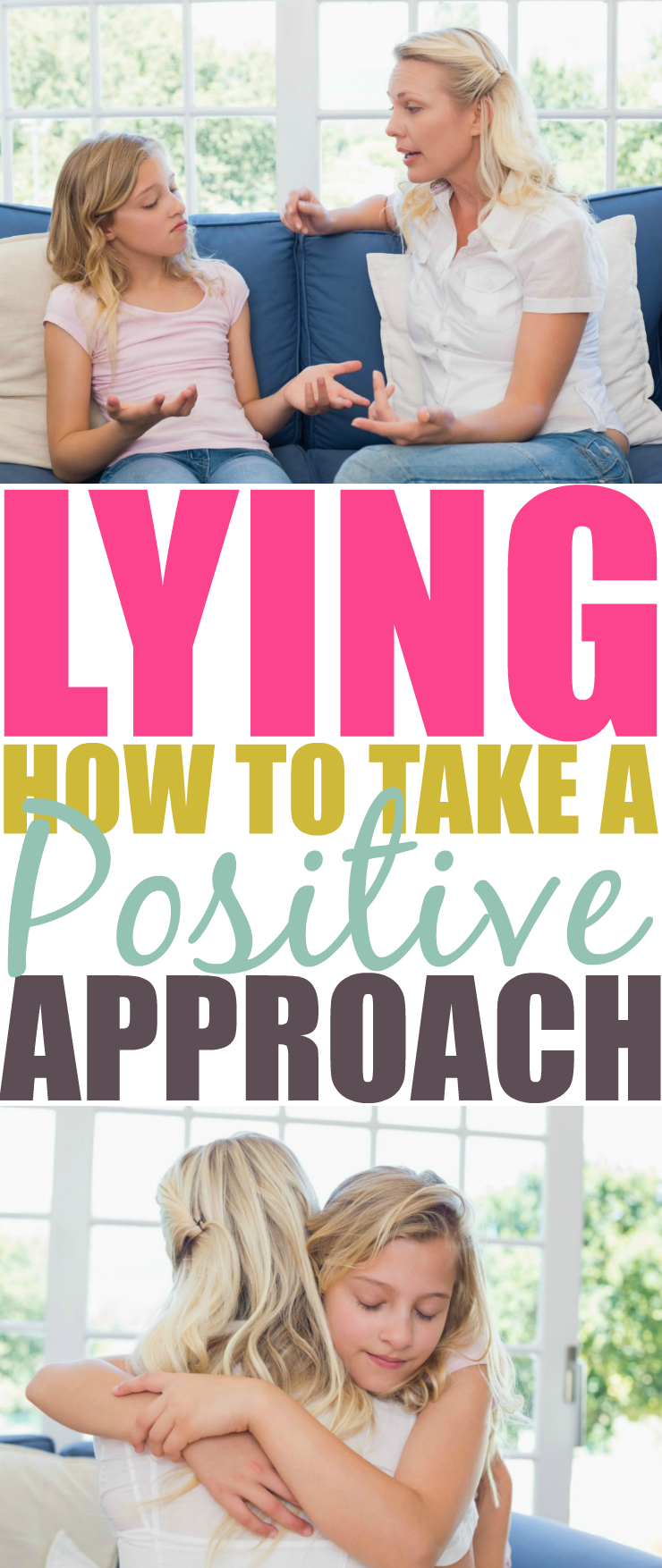How to Take A Positive Approach When Your Child Is Lying
 I think if we stop and look back to when we were a child, we might see that we lied a lot as a kid. It is not something you would be proud of, it is just a natural thing that happens and we learn. It could have been, did you eat that candy, or get your chores done. Regardless, a lie is a lie, and we all have done it a time or two.
I think if we stop and look back to when we were a child, we might see that we lied a lot as a kid. It is not something you would be proud of, it is just a natural thing that happens and we learn. It could have been, did you eat that candy, or get your chores done. Regardless, a lie is a lie, and we all have done it a time or two.
As a parent you want your child to be honest, and that takes communication and working with them in a positive way when you catch them lying. This is something that will take time but will be very rewarding at the end of the day. Honesty is a valuable trait in adults, and when we catch our kid lying, it can set off alarms. I am going to share how to take a positive approach when your child is lying!

Some Reasons Why Children Lie
First, we need to stop and look at why children lie so that we can better understand them!
- Young children don’t understand the difference between what is true and what isn’t. So young children do it out of innocence, it is just something they haven’t learned yet. Just like learning to crawl, walk, it all has to be at a certain age, for your child to understand how to do it.
- Lies that children share might be said to hide something so they don’t feel like they will be shamed or have a negative consequence.
- Children that have lower self-esteems may exaggerate or embellish the truth to try to fit in and get approval from their parents or elders around them. They have that need to fit in.
- Lastly, they can lie to get out of doing something they don’t want to go and have fun playing outside.

Tips For Taking A Positive Approach When Your Child Is Lying
How we react to our children lying can truly lay a foundation for open communication for years to come. If your child fears you when they lie, they are more than likely going to hide things from you. The last thing you want is your children to feel like they can’t tell you the truth out of fear.
Be a Role Model
Make sure you as the parent and adult take on a role to be honest, even if that means you mess up and have to admit your faults. Your child will see you being honest and not lie.
Praise Honesty
Make sure that you encourage and praise honesty, whenever your child tells the truth. You can say something like, “Thank you for being honest and telling me you hit your brother”. This will encourage them, to be honest, more often than not.
React Calmly
If you catch your child in a lie, speak with them in a calm and patient way, and listen to what they are saying. Ask them why they lied to you about eating the candy or breaking the toy. If you come at them yelling, they will be even more afraid, and probably come up with more lies to cover up. Ask them why they chose to lie, were they afraid or scared to tell the truth?
Importance of Truth
Teach your child after you find them lying and even when you are just discussing things, about being honest and telling the truth. Let them know how important it is, to be honest even if that makes you a little embarrassed. Maybe read the book, The boy who cried wolf, that is a great example. After so long no one believed a word the boy was saying. Lying up a storm and Telling the truth: A book about lying are also great books to help teach them the importance of truth.
Consistent Consequences
Make sure that your child knows that lying when caught will result in consequences that you will follow through on. If your child didn’t do the chores like they were asked, they will love screen time or not able to go out and play with friends over the weekend. Depending on the age will depend on the consequences. Always enforce to your child that being honest is the best policy, and when they do lie, they have to learn it isn’t right and has consequences.
Try To Avoid
- Labelling your child as a bad kid or a liar if they do get caught in a lie, as that can be hurtful to them.
- Yelling or forcing your child in a mean way, to tell the truth.
Always approach the situation in a calm and rational way, and ask them if they are lying about the certain situation. Let them know you just want them to be honest. You love your child, and you don’t like that they lied, but like all other phases in a child’s development, it takes time and teaching from the parent on the right way to handle things.
Visit my parenting section for more parenting articles.
Do you have any tips on how you take a positive approach when your child is lying? Leave them in the comment section below!
- Disneyland Dole Whip Popsicles - June 22, 2024
- Popsicle Rice Krispies Treats - June 21, 2024
- Pigs in a Blanket - May 15, 2024


kathy downey says
This is a great post every parent should read!
kristen visser says
I did lie quite a bit when I was a child. My reason for doing so most of the time, was because i was scared of what my parents might say and scared to make them mad! I hated that feeling so I tried to prevent that by hiding whatever it was. I am hoping my daughters will feel better about coming to me about whatever it might be. my girls are only 5 & 3 so we really havent had to deal with this quite yet but I know the time will come and these are great pointers to remember for when the time gets here
Janet M says
Excellent post. I agree we need to get to the root reason and I find it often is very reasonable once we get there.
Rebecca H says
I see a bit of my daughter in this! I have tried various approaches you listed above, like reacting calmly. It sometimes works, but, it seems that I need to find the real reason this is happening! Thanks for the article!
Tracey S says
This was a great article, we have tried some of these approaches as we are dealing with it currently with our 5 year old but some great tips we can implement – thank you:)